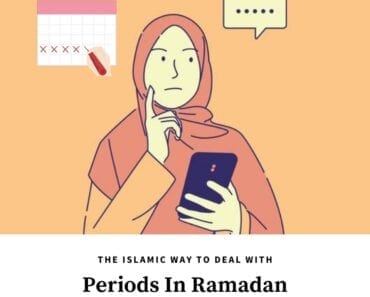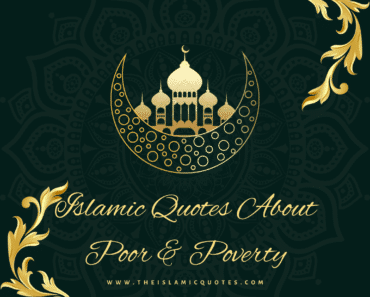Special Islamic Days: The Islamic calendar is based on the lunar cycle, and the dates of Islamic holidays change every year. The main holidays in the Islamic calendar are Eid al-Fitr, which marks the end of Ramadan, and Eid al-Adha, which marks the end of the hajj pilgrimage.
Special Islamic days are also a time for Muslims to remember the events that took place during the time of the Prophet Muhammad (S.A.W.). These events are known as “milestones” and include the Prophet’s birth and the night he received the first revelation of the Quran.
What are the Important Islamic Holidays?
Muslims also celebrate the days that mark the beginning and end of the fasting month of Ramadan. This month, Muslims reflect on their lives and try to become closer to God.
If you want to learn about special Islamic days, when they are, and what they mean, this guide provides an overview of the most important days in the Islamic calendar and what they represent.
01. Ashura
Muslims view Ashura, the 10th day of Muharram, as one of the Islamic holidays and the most important day in a holy month. On this day, many Muslims fast and pray. However, the reasons why Sunni and Shia Muslims observe Ashura are different. Shias regard it as a day of grief for the martyred grandson of the Prophet Muhammad, Hussain Ibn Ali.
Hussain Ibn Ali allegedly rose in rebellion against the recently installed monarch Yazid. At the Battle of Karbala, Hussain was attacked by Yazid’s army as payback. He was executed there on Muharram 10, while his family was held captive in Damascus. On Ashura, some Shias whip themselves or hit their chests to recall Hussain’s suffering.
Sunni Muslims do not mourn but memorialize these events with poetry and eulogies.
Ashura Date 2023: 10 Muharram / 27th -28th July, 2023 (Depending on moon sighting)
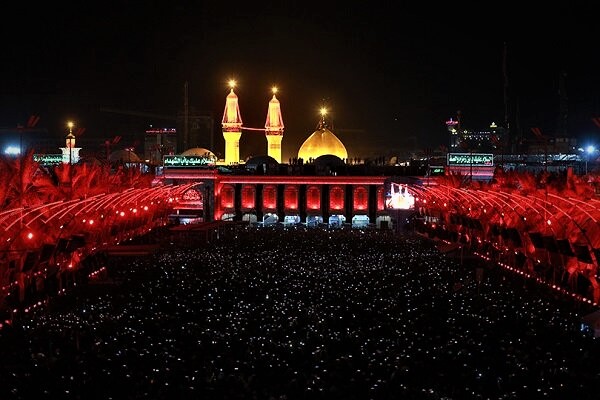
02. Islamic New Year (Hijiri Year)
Muslims celebrate the Hijri year at the start of Muharram, the first month of the Islamic calendar. According to the Qur’an, Muharram is one of the four holy months of the year. It commemorates Muharram’s migration from Mecca to Medina in 622 CE (hijra). There they founded the initial Muslim settlement.
Many Muslim nations observe public holidays on January 1. Various civilizations and cultures have different customs. Moreover, most people commemorate the day in silence, spending time with family and expressing gratitude.
Islamic New Year 2023 Date: 18 July 2023 (Depending on moon sighting)
03. Shab e Miraj
Shab e Miraj commemorates a two-part journey that Prophet Muhammad (S.A.W.) is thought to have made one night in 1444. Muslims believe that the physical and spiritual journey began in the seventh month.
A horseback ride took Muhammad (S.A.W.) and Archangel Gabriel to “the farthest mosque.” At the mosque in Jerusalem that later Muslims called Al-Aqsa, Muhammad (S.A.W.) led earlier prophets in prayer. Then he and Gabriel ascended to the seven heavens.
A number of prophets met Muhammad (S.A.W.) in heaven, including Jesus, Moses, and Abraham. Allah welcomed him into His presence and instructed Muslims to offer 50 prayers daily.
It was too much for believers, and Moses retorted when Muhammad (S.A.W.) left and told him about it. Muhammad (S.A.W.) switched nine times between Allah and Moses. Allah finally limited the number of prayers daily to five, and Muhammad (S.A.W.) left for Mecca that same evening.
Shab e Miraj Date 2023: 27th Rajab / 17 February, 2023 (Depending on moon sighting)
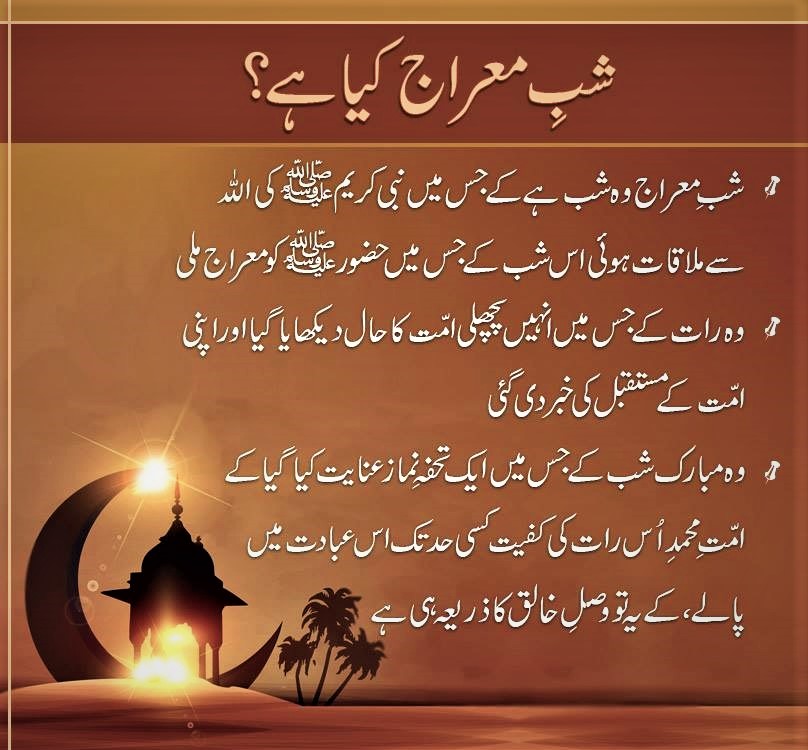
04. Shab e Barat
In Sha’ban, the month before Ramadan, Shab e Barat occurs between the 14th and the 15th. The occasion is also known as Nisf Sha’ban. In various areas, Muslims, Shias, and Arabs with Sufi ancestry all observe the occasion.
Observers recite Surah Yasin, the 36th chapter of the Qur’an, in the evening of 15 Sha’ban, after the fourth or fifth prayer of the day. There is a belief that Allah is most forgiving at night. Muslims pray for forgiveness, good health, and increasing faith in themselves, their family, and their ancestors.
Shab e Barat 2023 Date: 14th or 15th of Sha’ban / 7th -8th March, 2023 (Depending on moon sighting)
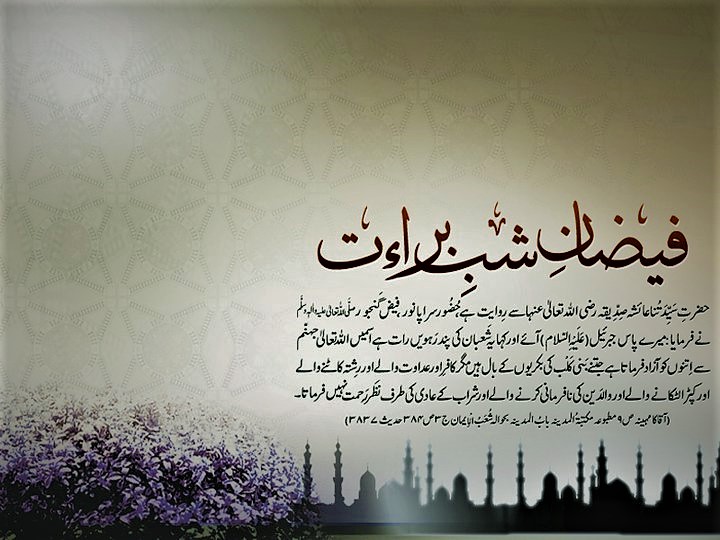
05. Eid Milad Un Nabi (S.A.W)
On the 12th day of the third month, Muslims commemorate Mawlid al-Nabi, the birthday of Prophet Muhammad (S.A.W.). It is one of the significant public and Islamic holidays in the majority of Muslim nations.
The celebration has roots in the Tabi’un and the early days of Islam. After Muhammad’s immediate disciples, this was the subsequent generation of believers. In significant cities, the Tabi’un started to perform poetry readings and performances in praise of the Prophet.
It is often reported that the Quasidas (poems) were written in opposition to the denigration of Muhammad by the Meccan infidels. It is still part of Milad al-Ntraditionions to read devotional poetry and the Qur’an. Additionally, believers attend feasts, marches, and lectures about the Prophet (S.A.W.).
Eid Milad un Nabi Date 2023: 12th Rabbi ul Awal / 26th -27th September, 2023 (Depending on moon sighting)
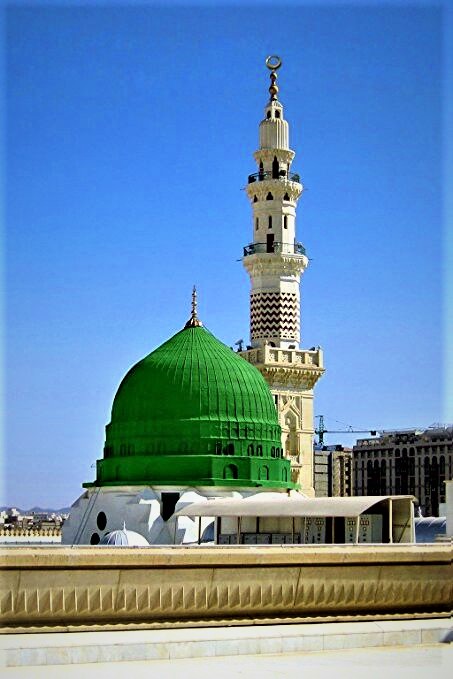
06. Ramadan
Muslims worldwide observe a daytime fast during Ramadan, the ninth month of the Islamic calendar. But it’s also a month when Muslims purify their lives, practice self-sacrifice, and give all their attention to Allah. Sawm means “to refrain,” including from eating and from evil deeds, thoughts, and words.
During Ramadan, Muslims try to make connections, complete recitation of the Quran, purify their lives and minds, and forgive others.
A believer’s goal is to control every organ in the body, such as keeping the eyes from seeing evil and the mouth from speaking lies. Moreover, believers “fast” to purify their bodies and souls before worshiping God.
Ramadan 2023 Date: Thursday, March 23, 2023 (Depending on moon sighting)
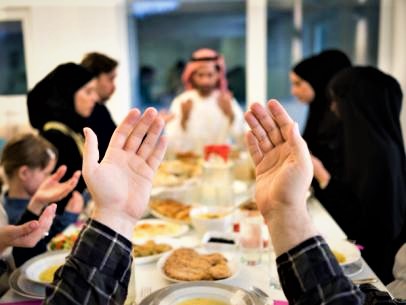
07. Laylat Al Qadar
As the holiest night of the year, Muslims revere Laylat al-Qadr as a “Night of Power.” It commemorates the evening when the Prophet Muhammad (S.A.W.) first heard the Qur’an and is observed on the 27th of Ramadan.
The study, devotional readings, and prayer are all practices that believers do to observe Laylat al-Qadr.
According to tradition, prayers are more likely to be heard during the holy night. It is believed that those praying in faith and expecting to receive Allah’s rewards are forgiven for past misdeeds.
Celebration Day: 27th Ramadan / 17 April, 2023 (Depending on moon sighting)

08. Eid Ul Fitr
The month of Ramadan ends with Eid al-Fitr. It occurs on the first day of Shawwal.
Eid al-Fitr marks the completion of a month of blessings and fasting and is also dedicated to charity donations. Families distribute foodstuff to those in need during the last few days of Ramadan. This guarantees that everyone can enjoy a special meal.
A sermon and a brief congregational prayer are also part of the Eid prayer, which is held early in the morning. Afterward, they call or visit their relatives and friends and exchange gifts. Most Muslim nations observe the three-day Eid holiday as a recognized government and educational holiday and all Muslims try their best to perform the sunnahs of Eid.
Eid ul Fitr Date for 2023: 1st Shawwal / 22nd April, 2023 (Depending on moon sighting)
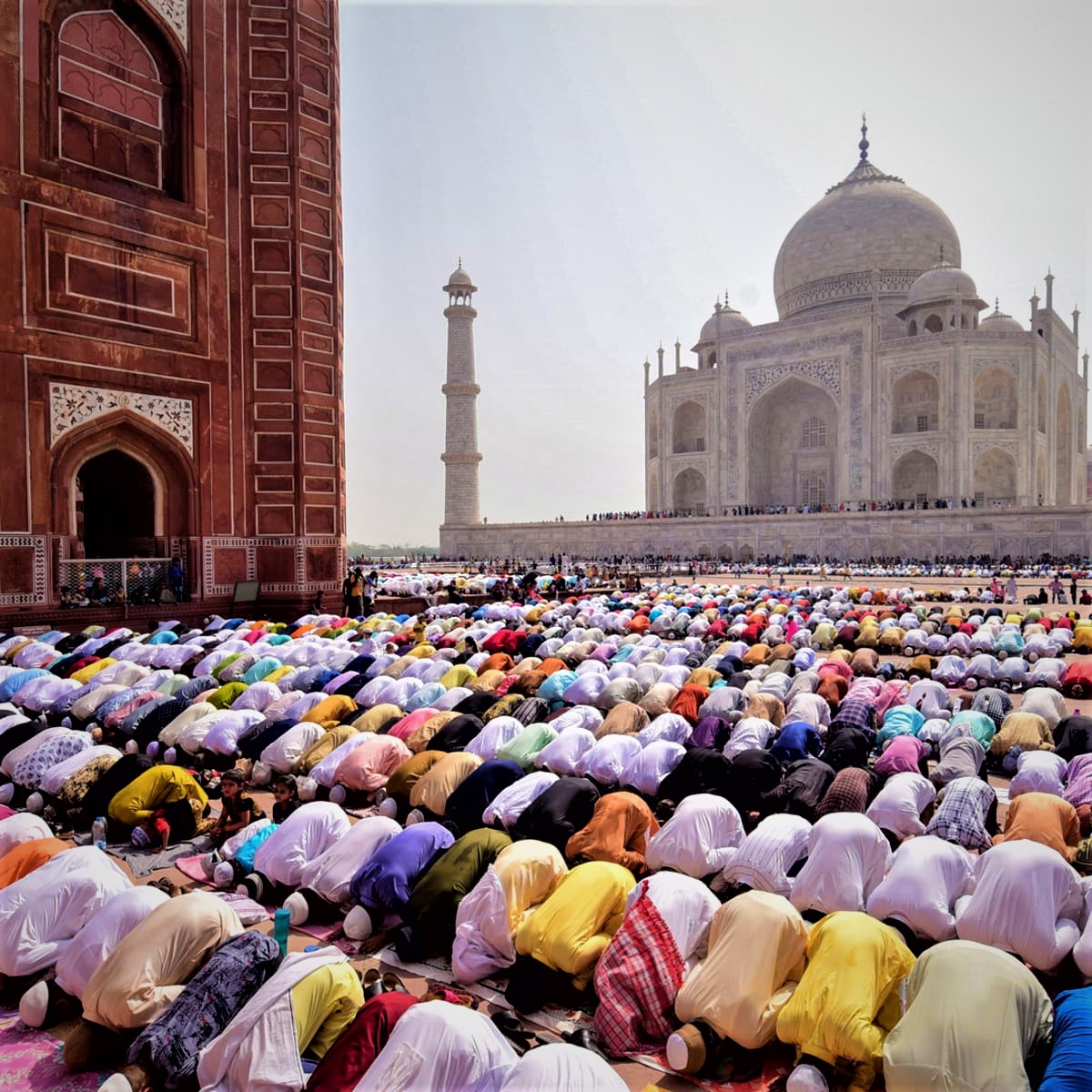
09. Hajj
Muslims travel to Mecca, Saudi Arabia, where Prophet Muhammad was born, and there they perform the Hajj annually. In the last month of the year, Dhu al-Hijjah, the Hajj takes place from the eighth to the twelfth. Every capable adult Muslim must make the pilgrimage at least once in their life.
Millions of people congregate in Mecca to perform various practices during the Hajj. The Kaaba, the dark cube-shaped structure Muslims face during prayer, is circled seven times clockwise. Along with drinking water from the Zamzam Well, they also hit the three pillars with pebbles. Before celebrating Eid al-Adha, believers also shave their heads.
Hajj Date for 2023: 8th to 12th of Dhu al Hijjah / 26th June – 1st July, 2023 (Depending on moon sighting)
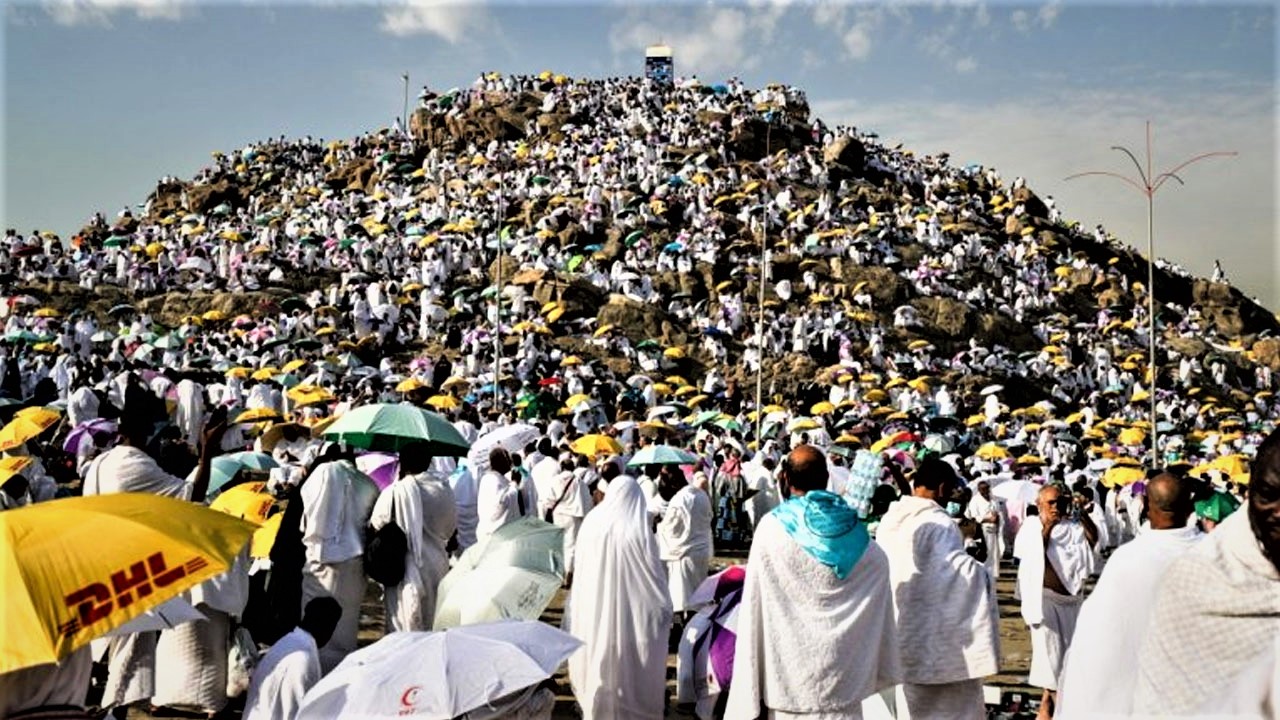
10. Eid Ul Adha
Hajj comes to a close with Eid al-Adha, which lasts three to four days. The occasion honors the history of the Prophet Ibrahim, who was willing to offer his son Ismail as a sacrifice.
Muslims hold that Ibrahim selected Ismail as the son he would sacrifice when God told him to. Similar to the Christian and Jewish narratives, just as Ibrahim was going to slaughter Ismail, God spared the child by substituting him with a lamb.
At dawn on Eid al-Adha, Muslims congregate at the mosque. They say the Takbir, a confession of faith, and Salat al-Eid, a prayer done on Eid al-Fitr.
Believers visit their loved ones and exchange presents.
In honor of Ibrahim’s sacrifice, those with the ability offer a sheep, goat, or cow as a sacrifice. They divide the meat among themselves, give some to the needy, and share with their friends and family.
Eid ul Adha Date for 2023 : 10th Dhu al Hijjah / 28th or 29th June, 2023 (Depending on moon sighting)
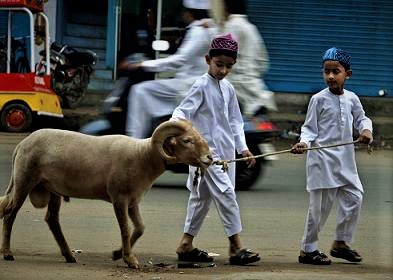
Concluding remarks:
There are many special Islamic days throughout the year. Some days are Islamic holidays, while others are important events in Islamic history. This guide provides information on some of the most important Islamic days. We invite you to share your thoughts on these special days with us.
Frequently Asked Questions
Q: Is Friday a special day in Islam?
For Muslims, Friday is a crucial day. It is more important and advantageous than any other day of the week. The Qur’an’s chapter “Al-Jumah,” which means “the day of assembly,” emphasizes the significance of Friday as a holy day.
It states,
“O you who believe! When you are called to congregational (Friday) prayer, hasten to the remembrance of God and leave off trade.”
Q: How many festivals are there in Islam?
The most famous Islamic celebrations include Lailat al-Qadr, Mawlid an-Nabi, Eid al-Fitr, and Eid al-Adha.


